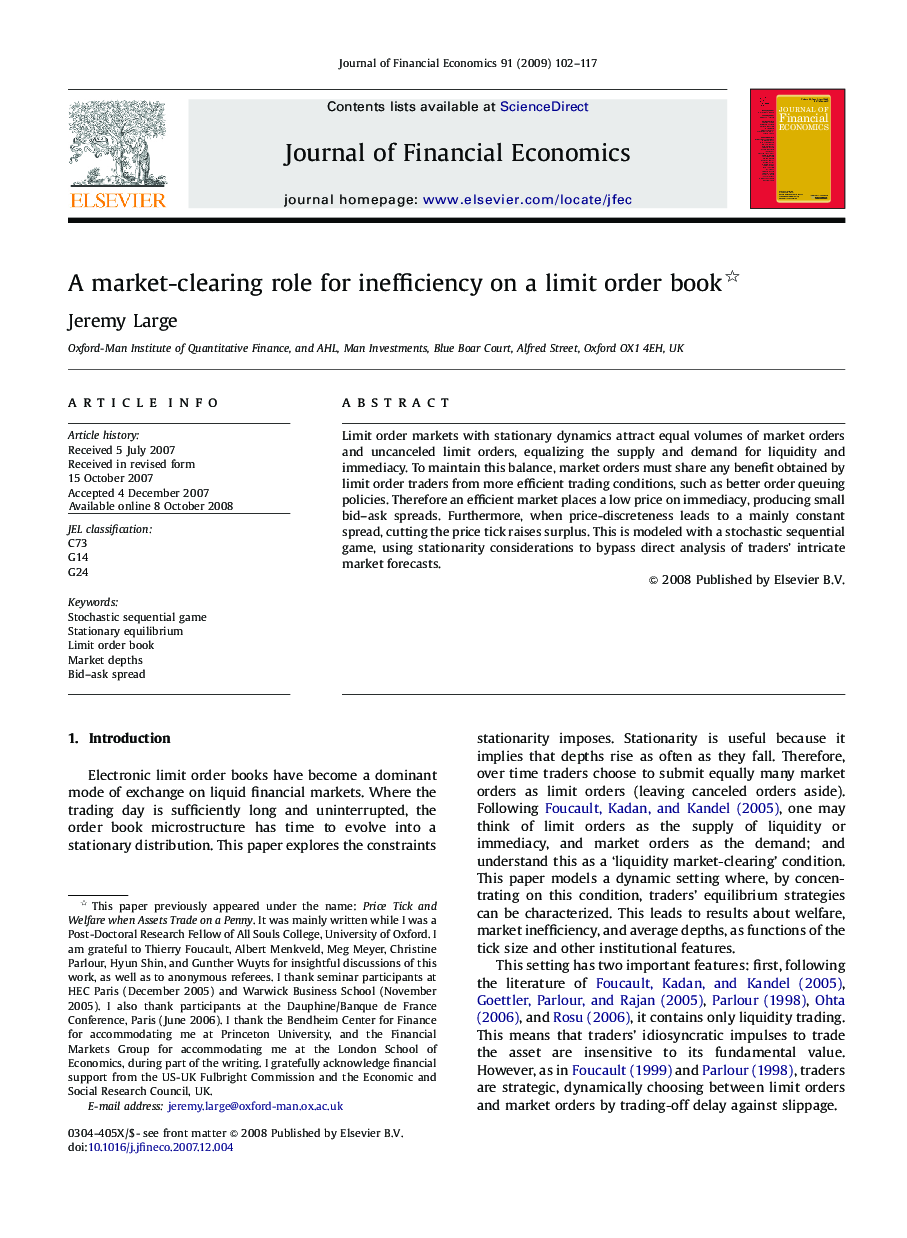| Article ID | Journal | Published Year | Pages | File Type |
|---|---|---|---|---|
| 960334 | Journal of Financial Economics | 2009 | 16 Pages |
Abstract
Limit order markets with stationary dynamics attract equal volumes of market orders and uncanceled limit orders, equalizing the supply and demand for liquidity and immediacy. To maintain this balance, market orders must share any benefit obtained by limit order traders from more efficient trading conditions, such as better order queuing policies. Therefore an efficient market places a low price on immediacy, producing small bid–ask spreads. Furthermore, when price-discreteness leads to a mainly constant spread, cutting the price tick raises surplus. This is modeled with a stochastic sequential game, using stationarity considerations to bypass direct analysis of traders’ intricate market forecasts.
Related Topics
Social Sciences and Humanities
Business, Management and Accounting
Accounting
Authors
Jeremy Large,
